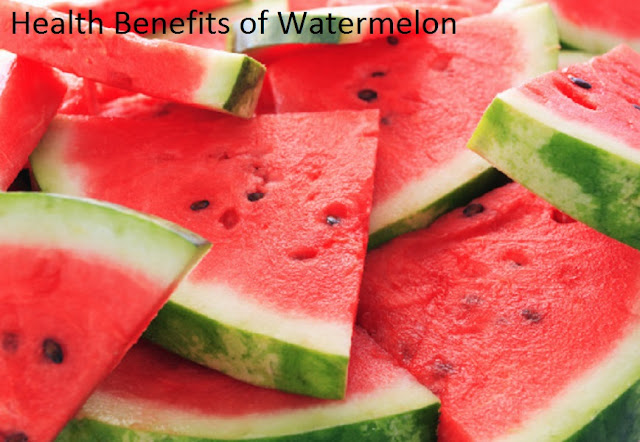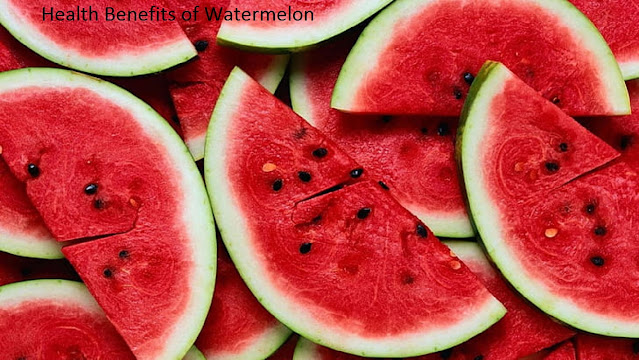Categories
Most Popular
Dahi Baray Recipe
Search This Blog
- January 20261
- December 20254
- November 20254
- October 20257
- September 20256
- August 20257
- July 20257
- June 20252
- May 20258
- April 20255
- March 20252
- February 20256
- January 20256
- December 20245
- November 20245
- October 20248
- September 20245
- August 20247
- July 20245
- June 20243
- May 20249
- April 20244
- March 20248
- February 20246
- January 202412
- December 20238
- November 20239
- October 202312
- September 202310
- August 202310
- July 20236
- June 20237
- May 202310
- April 20239
- March 20235
- February 20233
- January 20238
- December 20225
- November 20229
- October 202212
- September 20227
- August 202211
- July 20224
- June 202210
- May 20228
- April 20221
- March 202224
- February 202214
- January 202216
- December 202112
- November 202116
- October 202117
- September 20219
- August 202122
- July 202117
- June 202128
- May 20211
- April 20213
Health Benefits of Watermelon
A favorite fruit of the season in the summer, watermelon is also stunning and delectable. it's healthy for you. It could seem like mostly sugar and water at first glance. But you'll be astonished by how many possible health advantages it has after you dig in and learn about its broad assortment of nutrients.
This delicious fruit is packed with nutrients and is one of our favorite summertime treats. Potassium and vitamins A, C, and B are abundant in them. Lycopene, the antioxidant that gives watermelon its deep red color, is what makes the fruit a need.
Lycopene's positive effects have been supported by much research. The antioxidant is proven to lower blood pressure and lower the risk of stroke.
Despite having less fiber than other fruits, watermelon has few calories, little fat, and a lot of water. Look at the nutritional advantages of watermelon now that you've learned about the significance of the fruit.
1-Could Possess Anti-Cancer Qualities:
Watermelon contains two plant compounds that may be anticancer agents: lycopene and cucurbitacin E.
Consuming lycopene may reduce the incidence of several cancers, including prostate and colorectal cancers, despite inconsistent research results.
Lycopene is considered to function by lowering blood levels of the hormone insulin-like growth factor (IGF), which promotes cell proliferation. Notably, uncontrolled cell division leads to the development of cancer.
By inducing cancer cells to engage in autophagy, cucurbitacin E may also delay the growth of tumors. Autophagy is the process through which your body gets rid of damaged cells.
2-Aids in keeping you Hydrated:
Your body needs water to function correctly, so make sure you drink plenty of it. Only a few basic functions that depend on sufficient hydration include controlling body temperature, maintaining regular organ function, delivering nutrients to cells, and maintaining alertness.
It may be possible to assist your body get the water it requires to function effectively by eating meals with a high water content. Watermelon is a wonderful choice for daily water consumption because it includes 92% water.
Eating low-calorie foods like watermelon may help with weight management because it makes you feel fuller for longer.
3-Might ease Soreness in the Muscles:
Citrulline, an amino acid included in watermelon, may enhance athletic performance and lessen stiffness in the muscles. It is also offered as a supplement.
According to one study, daily use of citrulline for at least seven days increased the body's generation of nitric oxide, which in turn boosted aerobic performance. This substance aids in blood vessel expansion, which lessens the workload on your heart as it pumps blood throughout your body.
Furthermore, there is some evidence that suggests watermelon itself, rather than just citrulline, may benefit your body after exercise.
4- Keep an Appropriate Weight:
If you want to avoid the temptation of high-calorie sweet snacks and maintain or reach a healthy weight, watermelon can be a terrific choice. Watermelon has minimal calories and can keep you feeling full for longer due to its high water content.
According to a 2019 study of 33 persons who were classified overweight or obese, those who substituted watermelon for low-fat cookies every day for four weeks reported feeling less hungry and having fewer food cravings. Consuming watermelon was linked to decreased blood pressure, waist-to-hip ratio, body weight, and body mass index (BMI).
5-Aids in Blood Sugar Control:
Your kidneys use this sweet fruit to change the amino acid L-citrulline into L-arginine. (amino acid). These two amino acids have the propensity to save you from diabetes. In terms of medicine, the L-arginine supplement that watermelon contains is essential for controlling how the body uses insulin and glucose.
6-Lessens Dental Issues:
About 25% of the world's population suffers from periodontal disease, which can be avoided by eating one cup of watermelon every day. This condition is characterized by infection, tooth loss, and a connection to other heart conditions. Vitamin C is the main compound that lessens the negative consequences of periodontal disease. So all you have to do to benefit from this is include some watermelon in your regular diet.
7-May Improve Digestion:
Watermelon has minimal fiber and a lot of water, which are both necessary for a healthy digestive tract.
Fiber helps to maintain regular bowel movements while water helps to carry waste through your digestive tract more effectively.
Watermelon's polyphenol plant components help your gut's beneficial bacteria grow. This not only facilitates digestion but also might strengthen your immune system and increase the production of vital nutrients in your stomach.
8- Aids in the Prevention of Cardiovascular Disease:
The watermelon contains lycopene, which is responsible for the fruit's scarlet hue. Although this chemical may be found in tomatoes as well, did you know that watermelon contains more of it than tomatoes? Indeed, lycopene can lower cholesterol, which will lower your risk of heart-related disorders. All you need to do to get the desired results is eat one cup of watermelon every day.
Watermelon contains many elements that may help heart health.The main cause of death in the world is heart disease. It's important to note that modifying your lifestyle, such as through nutrition, may lessen your risk of having a heart attack or stroke by lowering your blood pressure and cholesterol levels.
Lycopene may help decrease blood pressure and cholesterol, according to studies. It might also lessen the risk of oxidative harm brought on by elevated cholesterol levels.
Citrulline, an amino acid found in watermelon, may help your body produce more nitric oxide. Your blood arteries widen as a result of nitric oxide, which decreases blood pressure.
Magnesium, potassium, and vitamins A, B6, and C are additional heart-healthy nutrients and vitamins in watermelon.
9-Inhibits Asthma:
Lycopene, one of the essential antioxidants, aids in the body's response to the common cold and flu. And what's even more intriguing is that this antioxidant has been shown to lessen children's asthma flare-ups.
Watermelon enables asthmatics to breathe normally without needing to hold their breath in fear. According to a survey, asthmatic individuals who consume enough lycopene and vitamin A may benefit.
10-Could Reduce Blood Pressure:
citrulline can enhance blood flow and reduce blood pressure by opening and relaxing blood vessels. Maintaining sufficient hydration helps the heart pump blood to muscles more efficiently, which lowers blood pressure.
The best natural source of citrulline is watermelon. And a Florida State University study found that citrulline and arginine, an amino acid crucial for maintaining good blood pressure, are closely connected.
A good source of potassium, which is known to decrease high blood pressure, is also found in watermelons. Another electrolyte that controls blood pressure during exercise is potassium.
11-Improves Immunity:
Due to its high vitamin C content, watermelon helps to boost immunity. The fruit also includes vitamin B6, which aids in the production of antibodies by the immune system. Additionally, the vitamin supports the production of red blood cells. The fruit contains vitamin A, which controls the immune system and guards against illnesses.
12-Promotes Good Eye Health
Regarding your eyes, the minerals in watermelon are extremely beneficial. Cataract development may be slowed down or avoided with the aid of antioxidants. You may even experience a decreased risk of age-related macular degeneration, which can result in blindness.
The health of your corneas is also supported by the vitamin A in watermelon. One medium slice of watermelon has up to 11% of the daily recommended amount of vitamin A, so it doesn't take much.
13-May Promote Healthy Skin:
Watermelon contains vitamins A and C, both of which are crucial for healthy skin.
Vitamin C helps your body produce collagen, a protein that maintains your skin smooth and your hair strong, whether it is consumed or administered topically.
Due to its role in the development and repair of skin cells, vitamin A is also crucial for healthy skin. Keep in mind that additional research on humans and watermelons in particular need
Watermelon contains vitamin C, which aids in collagen production and promotes your immune system, cell health, and wound healing. Your skin gains strength and elasticity from collagen, which also aids in the removal of dead skin cells. Therefore, consuming watermelon may help your skin and delay the signs of aging.
Watermelon's beta-carotene, which produces vitamin A, aids in skin cell renewal and prevents dry skin and flaking. Its vitamin B6 might aid in acne prevention. You are correct if you speculate that watermelon would even make a fantastic addition to a face mask; it does.
Nutrients:
Numerous minerals, including potassium, magnesium, and vitamins A and C, are present in watermelon. Additionally, it has a low-calorie count, with only 46 in a cup (152 grams.
The nutrients in 1 cup (152 grams) of diced, uncooked watermelon are as follows:
46 calories
Carbs 11.5 grams
Fiber 0.6 grams
Sugar 9.4 grams
Protein 0.9 grams
Fat 0.2 grams
Vitamin A 5% of the daily value (DV)
Vitamin C 14% of the DV
Potassium 4% of the DV
Magnesium is 4% of the DV
Citrulline, an amino acid that may enhance physical performance, is abundant in watermelon.
It has antioxidants including vitamin C, carotenoids, lycopene, and cucurbitacin E.
These substances aid in the fight against free radicals, unstable molecules that can harm your cells if they build up in your body. This harm may eventually result in diseases like diabetes, heart disease, and cancer.




0 Comments